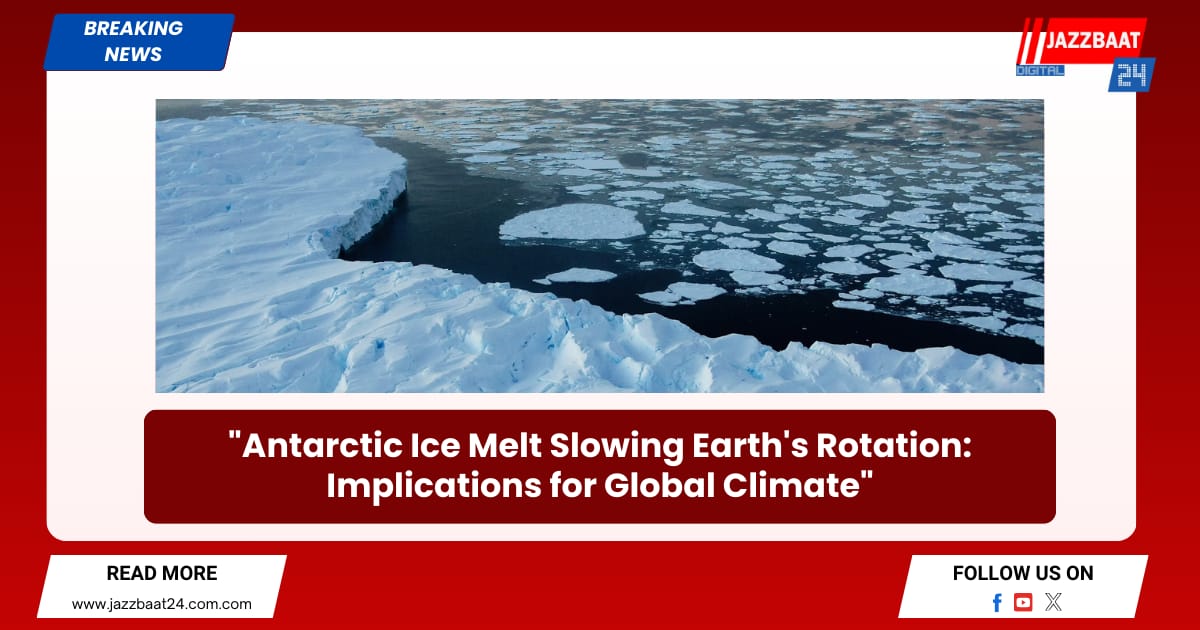Recent scientific findings have revealed a startling connection between the melting of ice in Antarctica and the rotational speed of the Earth. According to researchers, the ongoing ice loss in the southern polar region is contributing to a gradual slowdown in the planet's rotation, with significant implications for global climate patterns and geophysical phenomena.
The phenomenon, known as "ice mass loss rebound," occurs as massive quantities of ice melt and redistribute, causing a shift in the Earth's mass distribution and altering its rotational dynamics. As glaciers and ice shelves in Antarctica continue to shrink due to rising temperatures and climate change, the resultant redistribution of mass exerts a drag on the planet's rotation, causing it to decelerate imperceptibly but measurably.
Scientists monitoring the Earth's rotation using advanced satellite technology have observed a slight lengthening of the day over the past few decades, attributed in part to the effects of ice melt in Antarctica. This subtle but significant change underscores the interconnectedness of Earth's various systems and highlights the far-reaching consequences of climate change on fundamental geophysical processes.
The implications of a slowing Earth rotation extend beyond mere timekeeping, influencing phenomena such as the length and timing of days, the distribution of solar energy across the planet, and even the behavior of ocean currents and atmospheric circulation patterns. These changes can have profound effects on weather systems, climate variability, and ecological dynamics, with potential implications for human societies and ecosystems worldwide.
The findings underscore the urgency of addressing climate change and mitigating its impacts on polar ice sheets and global climate systems. Efforts to curb greenhouse gas emissions, reduce reliance on fossil fuels, and promote sustainable development practices are crucial in preserving the stability of Earth's geophysical processes and averting potentially disruptive changes in the Earth's rotation and climate.
As scientists continue to monitor and study the complex interactions between ice melt, Earth's rotation, and global climate dynamics, the need for international collaboration and concerted action to address climate change becomes increasingly apparent. The fate of Antarctica's ice sheets and their impact on Earth's rotation serve as a poignant reminder of the profound consequences of human-induced climate change on the planet's natural systems and the imperative of taking decisive steps to safeguard its future.

